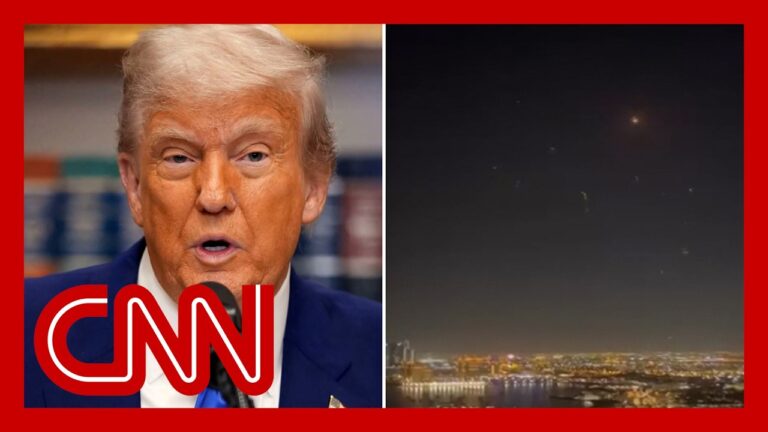Video at the bottom!
Former President Trump recently commented on Iran’s limited retaliation following the U.S. strikes on its nuclear facilities. He expressed that Iran’s response was “very weak” and appeared to be a release of pent-up frustration, suggesting that this could pave the way for peace in the region. He thanked Iran for providing advance notice of their strikes, which allowed for no injuries among U.S. personnel.
Earlier, Iran launched ballistic missiles at a U.S. airbase in Qatar, but reports indicated no injuries to American troops. This strike, described as a measured retaliation, came after the U.S. had conducted attacks designed to disrupt Iran’s nuclear capabilities. Official sources noted that Iran had warned Qatar beforehand to minimize casualties.
The situation remains tense, especially with recent Israeli airstrikes targeting Iran’s Evin prison, known for housing political prisoners. These developments have caused heightened alert among U.S. military and intelligence officials, who worry that Iran may target U.S. government officials if they perceive threats to their regime.
CNN’s coverage includes on-the-ground reports from Tehran, where celebrations followed Iran’s missile launch. Iranian officials have characterized their response as decisive, though analysts suggest it was likely more symbolic than substantial.
In the United Arab Emirates, concerns about broader regional threats have intensified, with U.S. troops closely monitoring the situation. Missiles fired from Iran prompted warnings and shelter advisories for American citizens in the region.
Israeli officials are observing the situation closely, as they expect potential retaliatory measures that could also affect their territory. The overall atmosphere is one of caution and tension as both Israel and the U.S. prepare for possible escalations while also pursuing diplomatic avenues to de-escalate the ongoing conflict.
Experts discuss the broader implications of Iran’s actions, emphasizing the need for both external and internal audiences to be considered in their strategy. The challenge remains in navigating the complex geopolitical landscape while aiming to reduce hostilities in the region.


